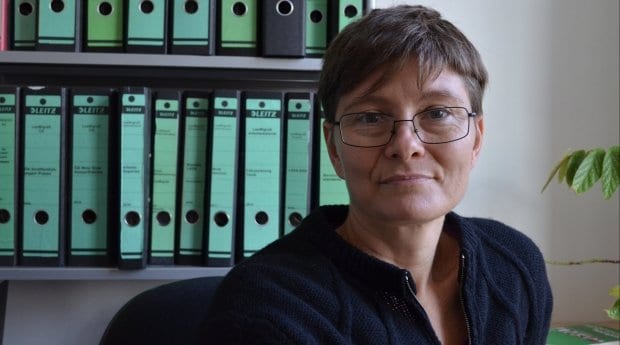Twenty-five years after its reunification, Germany has come a long way but has a long way to go to address social and political problems still plaguing the LGBT community, some activists say.
Though Germany, under pressure from the EU, passed the General Equal Treatment Act in 2006 to prevent discrimination in the workplace, the law exempted the Catholic Church, the second largest employer in the country.
Meanwhile, same-sex marriage remains illegal, as do some forms of adoption by same-sex families, and gay men are still banned from donating blood.
The Christian Democratic Union (CDU), in power along with the Social Democratic Party of Germany (SPD), is in no hurry to legalize gay marriage, but that hasn’t detracted from its popularity.
“The fact that the Christian Democrats are against gay marriage is not reason enough for a lot of people in Germany not to vote for them,” says Markus Ulrich, of the Lesbian and Gay Federation in Germany. “Even gay people vote for them. There are openly gay people in the party.”
Lela Lähnemann, of the Office for LGBTI Issues for the Berlin region, says there are four main areas her department is currently focusing on: equal rights and self-determination for trans and intersex people; international relations; extending rehabilitation to men persecuted not just during the Second World War, but in its aftermath from 1945 to 1969, under Paragraph 175; and anti-violence work. Many cases of violence and discrimination in the region are still not reported, she says. “There’s still a very big, dark field.”
Thanks to the work of LGBT groups and increases in government funding, however, progress is being made in all these areas, she says. “Fortunately, over the years the amount of money we can give to these organizations grew a lot, so we have quite a good infrastructure.”
In 2001, same-sex couples gained the right to register for most of the benefits that opposite-sex couples are eligible for, and in 2003 they got the right to adopt each other’s children. But while these gains are significant, some think they are not enough.
“To say that Germany is doing great in terms of homophobia and transphobia, you can’t say that,” says Jennifer Petzen, executive director of the Lesbian Counseling Centre in Berlin.
“There’s a tendency for these organizations to become incorporated into a neoliberal system,” she explains. “If you look at where all this money is going, and who’s getting it, I have a feeling that really disadvantaged and marginalized people are being left through the cracks. It’s exactly who these programs should be helping. A gay, white, middle-class man already has a lot of structural advantages, and the trans sex worker who might be Roma from Bulgaria . . . there is absolutely nobody fighting for her.”
Petzen doesn’t think the services offered to queer people in Berlin go far enough. “When you have people who are dying from HIV and they’re going to get deported, there’s a big problem.”
Racism around citizenship is a major problem for some LGBT people, she adds. “Being able to register your partnership, okay great,” she says. “But a queer person of colour has a completely different set of issues to deal with, and that’s not thought about by these big lobby organizations that bring about these big changes. So they might bring about gay partnership, but if you can’t even get citizenship, then it’s not an issue. And that’s a big segment of the population here.
“What if you’re a queer person and you can’t get citizenship here because your parents didn’t get you a passport? Maybe it was too expensive at the time and they kept putting it off, and now you’re a gay Turkish man and you are suddenly faced with the fact that you have to go to military service in Turkey, as a gay man, and you don’t even speak the language because you’ve grown up here,” she says. “Germany is modern and emancipated and all of that, but trans- and homophobia is still really anchored.”

 Why you can trust Xtra
Why you can trust Xtra


